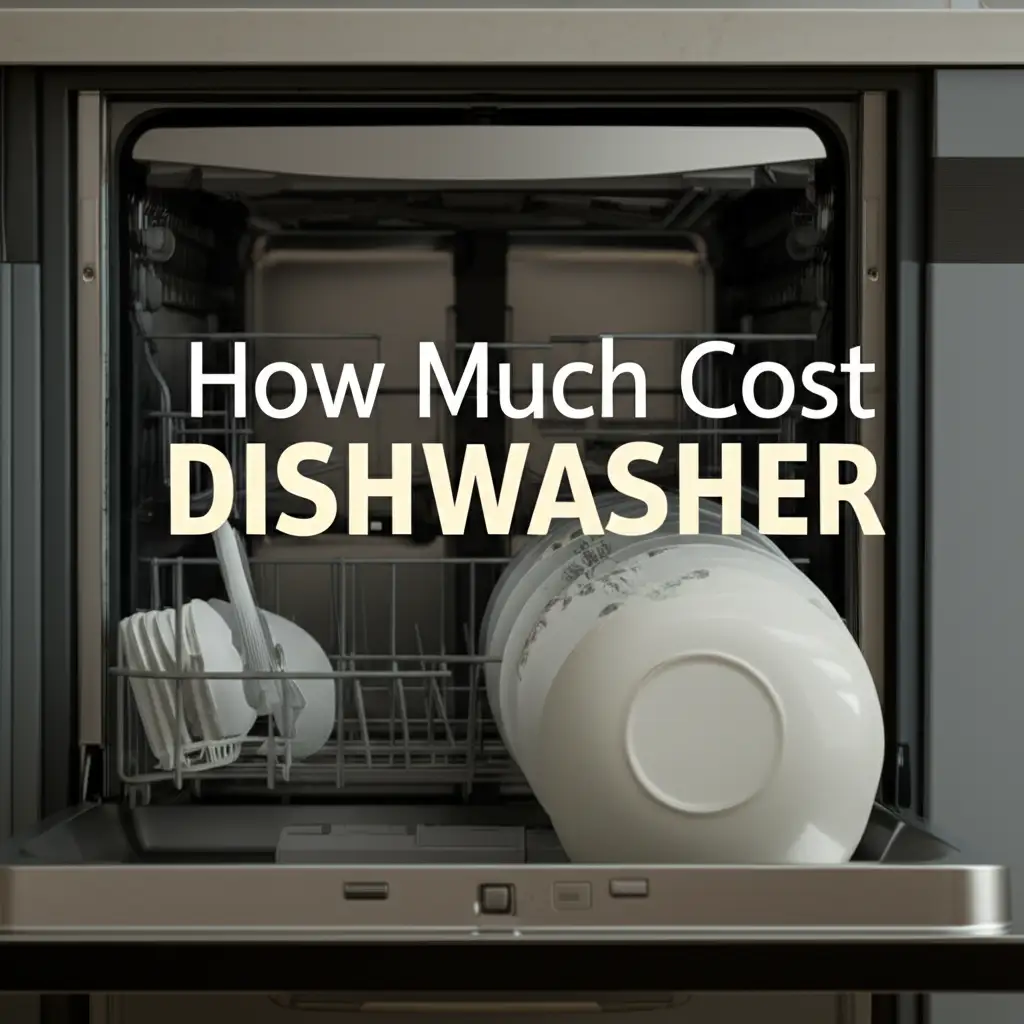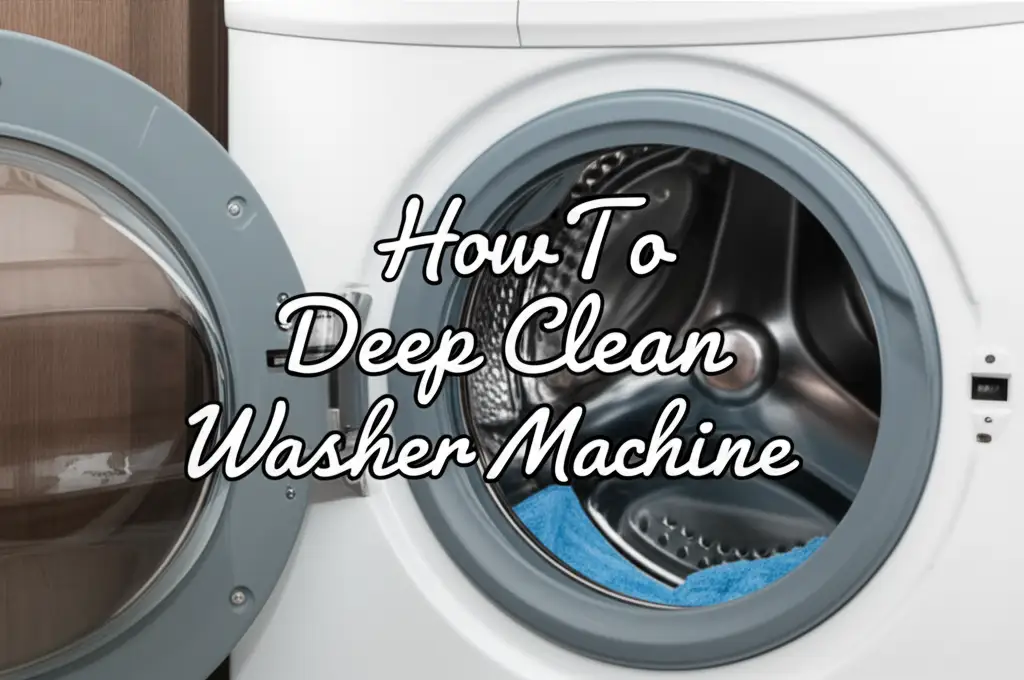· Elira Thomsen · Home Cleaning · 16 min read
How Much Cost Dishwasher

Understanding How Much a Dishwasher Costs: A Complete Guide
Thinking about a new dishwasher? You might wonder, “How much cost dishwasher?” This is a common question. The price tag on a dishwasher is only part of the story. You also need to consider other expenses. These include installation, daily running costs, and even future maintenance.
I remember when I bought my first dishwasher. I focused only on the sticker price. Later, I realized there was more to learn. This guide helps you understand the total cost of owning a dishwasher. We will look at initial purchase prices for different models. We will also cover installation fees, energy use, and long-term care. By the end, you will have a clear picture of what to expect. This will help you make a smart choice for your home.
Takeaway
- Initial Purchase Varies Widely: Dishwasher prices range from $400 for basic models to over $2,000 for high-end options.
- Installation Adds to Cost: Expect to pay $100 to $300 for professional installation, or do it yourself to save money.
- Operating Costs Matter: Energy and water consumption, plus detergent, contribute to ongoing expenses.
- Maintenance Extends Life: Regular cleaning and minor repairs prevent larger, more costly issues later.
- Consider Lifespan and Features: A more expensive, efficient model might save money in the long run through lower utility bills and longer life.
The cost of a dishwasher typically ranges from $400 for basic models to over $2,000 for premium, feature-rich units. This initial price is just one part of the total investment, as installation, ongoing energy and water usage, and potential maintenance also add to the overall expense.
Decoding Dishwasher Prices: Initial Purchase Costs
When you first look for a dishwasher, you see the purchase price. This is the main expense. Dishwasher prices vary greatly. They depend on the brand, features, and model quality. I have seen many price points during my own appliance searches.
You can find dishwashers at different budget levels. Each level offers different benefits. Knowing these levels helps you decide what you need. It also helps you find a dishwasher that fits your wallet.
Entry-Level Dishwashers
Entry-level dishwashers are the most affordable. They usually cost between $400 and $700. These models offer basic cleaning functions. They come with standard wash cycles. You might find fewer extra features on these units.
They are good for people who need a simple, reliable appliance. These dishwashers get the job done. They are a great starting point for first-time buyers. They fit well into a tighter budget.
Mid-Range Dishwashers
Mid-range dishwashers offer a good balance. They typically cost from $700 to $1,200. These models include more features than basic ones. You might find better noise reduction. They often have more wash cycles, like a sanitize option.
They also come with improved drying systems. You might see a stainless steel interior. This range provides better performance and durability. It gives you more options without a huge price jump.
High-End and Luxury Models
High-end and luxury dishwashers are the most expensive. Their prices start around $1,200 and can go over $2,000. These models come with advanced technology. They often have extremely quiet operation. They feature smart home connectivity.
You might find specialized wash zones or customizable racks. These dishwashers use premium materials. They offer superior cleaning and drying. They provide a sleek look and a great user experience. Many of these units boast features like hidden controls or panel-ready designs. They integrate seamlessly into your kitchen. For those seeking top performance and aesthetics, these models are an excellent choice. I have noticed that some high-end dishwashers are what dishwasher is made in the USA, which can sometimes influence their price point.
Beyond the Sticker Price: Dishwasher Installation Expenses
Buying a dishwasher is only the first step. You also need to install it. Installation costs add to your total expense. You have two main choices for installation. You can do it yourself, or hire a professional. Each option has its own costs and benefits.
I learned this firsthand. I tried to install one myself once. It was harder than I thought. Professional installation can save you time and headaches. It ensures the job is done right.
DIY vs. Professional Installation
Installing a dishwasher yourself can save money. You only pay for materials, like hoses or connectors. However, DIY installation requires some skills. You need knowledge of plumbing and basic electrical work. If you make a mistake, it can lead to bigger problems.
Hiring a professional installer costs money. Typically, this ranges from $100 to $300. This fee covers labor and expertise. Professionals have the right tools. They ensure your dishwasher works correctly and safely. They also handle any unexpected issues. For instance, if your existing plumbing has issues like how to get the dishwasher to drain problems, a professional can often address these during installation. I find that paying for a professional provides peace of mind.
Factors Affecting Installation Cost
Several things can change installation costs. Your kitchen’s setup is a big factor. If you already have a space for a dishwasher, it is simpler. If you need new plumbing lines or electrical outlets, the cost goes up. Older homes might need more work. They may not have the right connections.
Removing your old dishwasher also adds to the cost. Some installers include this. Others charge extra. Complex installations take more time. They require more materials. This increases the overall price. Always get a clear quote before starting.
Operating Costs: Energy and Water Consumption of Your Dishwasher
Once installed, your dishwasher starts using resources. This means energy and water. These are ongoing costs. They affect your utility bills every month. These costs vary greatly among models. I always look at these numbers. It helps me choose a truly efficient appliance.
Understanding these operating expenses helps you save money long-term. A cheaper dishwasher might cost more to run over time. An efficient one can pay for itself in savings.
Energy Efficiency Ratings (Energy Star)
Energy efficiency is key. Look for the Energy Star label. This label shows that an appliance meets strict energy guidelines. Energy Star dishwashers use less electricity. They clean dishes just as well. This lowers your power bill.
More efficient dishwashers might cost more upfront. But they save you money every year. Over the dishwasher’s life, these savings add up. They can outweigh the higher purchase price. Always check the annual energy consumption on the yellow EnergyGuide label.
Water Usage and Your Utility Bill
Dishwashers use water for cleaning. How much water they use affects your water bill. Newer models are much more water-efficient. Some use as little as 3-4 gallons per cycle. Older models might use 10 gallons or more. Choosing a water-efficient model helps lower your water bill.
It also helps the environment. Look for features like soil sensors. These sensors detect how dirty your dishes are. The dishwasher then adjusts water use. This saves water and energy. Using your dishwasher efficiently, like running full loads, also reduces water use.
Detergent and Rinse Aid Expenses
Beyond electricity and water, you need supplies. Dishwasher detergent is essential. Rinse aid is also common. The cost of these supplies adds up over time. You use them for every wash cycle. Different brands and types have different prices.
You can buy powder, gel, or pods. Pods are often more expensive per wash. But they are convenient. Rinse aid helps dishes dry without spots. Consider bulk buying. This can reduce your per-use cost. Make sure you use the right type of detergent for your machine; for example, you should never put can you use dishwasher liquid in dishwasher meant for hand washing into an automatic dishwasher. Proper use ensures both clean dishes and efficient spending.
Maintenance and Repair: Long-Term Dishwasher Costs
A dishwasher is an investment. Like any appliance, it needs care. Maintenance helps it last longer. It also prevents costly repairs. Ignoring maintenance can lead to big problems. I learned that a little effort upfront saves a lot of money later.
Regular cleaning and simple checks keep your dishwasher running smoothly. Sometimes, repairs are necessary. Knowing common issues helps you plan. It prepares you for these potential costs.
Routine Cleaning and Filters
Regular cleaning is vital. Your dishwasher has a filter. This filter catches food particles. A dirty filter makes your dishwasher less effective. It can also cause bad smells. Cleaning the filter is simple. You just remove it, rinse it under water, and put it back. You should know how often should you clean your dishwasher filter. This quick task prevents clogs.
You also need to clean the interior. Food residue and hard water can build up. This affects performance. Use a dishwasher cleaner or vinegar regularly. For example, knowing where to put vinegar in dishwasher to clean can make a big difference. This routine cleaning prevents issues. It keeps your dishes spotless. It also extends the life of your appliance.
Common Repairs and Parts
Even with good maintenance, repairs happen. Dishwashers have many moving parts. Seals can leak. Pumps can fail. Spray arms can get clogged. These issues need attention. The cost of repair depends on the part and labor.
Small parts are often cheap. A professional repair can be expensive. Sometimes, it is more cost-effective to replace the dishwasher. This is especially true for older models. Common repair issues include drainage problems or unusual noises. If you notice why is my dishwasher buzzing, it might indicate a motor issue or a clog. Addressing these quickly can prevent further damage.
Extended Warranties
When you buy a new dishwasher, it comes with a manufacturer’s warranty. This usually covers defects for a year. You can also buy an extended warranty. These warranties offer coverage for a longer period. They protect you from unexpected repair costs.
Extended warranties can be costly themselves. You need to weigh the price against the potential for repairs. For high-end models, an extended warranty might be a good idea. For basic models, it might not be worth it. Read the terms carefully. Understand what the warranty covers.
The Value Proposition: What Influences Dishwasher Pricing?
Many things determine a dishwasher’s price. It is more than just the brand name. Features, design, and technology all play a part. Understanding these factors helps you see the value. It explains why some models are more expensive. I always look at these details. They help me find the best fit for my needs and budget.
Thinking about these factors helps you make an informed choice. You can decide which features are important to you. You can also skip the ones you do not need.
Brand Reputation and Technology
Brand name influences price. Well-known brands often cost more. They have a reputation for quality and reliability. They also invest in research and development. This leads to new technology. Advanced technology also drives up the price. Features like smart home connectivity or precision sensors cost more to develop.
These technologies improve performance. They can also offer convenience. For instance, a dishwasher that senses soil levels runs more efficiently. It uses less water and energy. This technology adds value and justifies a higher price point for many buyers.
Features and Wash Cycles
The number and type of features impact cost. Basic dishwashers have standard wash cycles. More expensive models offer specialized cycles. These include delicate wash, heavy duty, or quick wash. Extra features also add to the price. Things like bottle jets or a third rack increase utility.
They provide more flexibility. They make cleaning specific items easier. Think about what features you will actually use. Do you need a special cycle for baby bottles? Or will a basic wash do? Choosing only necessary features helps control the cost.
Design and Finish
Aesthetics play a role in price. Dishwashers come in various finishes. Stainless steel is popular. It is durable and looks modern. It often costs more than white or black finishes. Integrated dishwashers are also more expensive. These models have controls hidden on the top edge of the door. They create a seamless look in your kitchen.
Panel-ready dishwashers are the priciest. They allow you to attach custom cabinet panels. This makes the dishwasher blend perfectly with your kitchen cabinetry. These design choices are about looks. They do not affect cleaning performance directly. But they significantly impact the overall price. You could even consider a solution like can I paint my dishwasher if you want to update its look without buying a whole new unit, though this is a less common approach.
Considering Lifespan and Replacement Costs for Your Dishwasher
A dishwasher does not last forever. Knowing its expected lifespan helps you plan. It lets you factor in future replacement costs. Understanding when to repair or replace is crucial. This decision affects your long-term budget. I always consider the total cost of ownership over many years.
Thinking about replacement early helps you save. You can budget for a new appliance. This prevents surprise expenses later on. It ensures you always have a working dishwasher.
Average Dishwasher Lifespan
Most dishwashers last about 9 to 10 years. This is an average. Some last longer. Some fail sooner. How well you maintain it affects its lifespan. Regular cleaning helps. Using it properly also extends its life. High-quality brands often last longer. They use better parts.
The frequency of use also matters. A dishwasher used daily might wear out faster. One used only a few times a week will last longer. Plan for a replacement around the 10-year mark. This gives you time to save up.
When to Repair vs. Replace
Deciding whether to repair or replace can be tough. Consider the age of your dishwasher. If it is more than 7-8 years old, replacement might be better. Repairs on older machines might not be worth it. The cost of repair might be close to a new basic model. Also, an older machine might have more problems soon.
Think about the repair cost. If the repair costs more than half the price of a new dishwasher, consider replacing it. New dishwashers are also more energy-efficient. They can save you money on utility bills. Sometimes, the new features justify the upgrade.
Disposal Fees
When you replace your dishwasher, you need to dispose of the old one. Appliance disposal can cost money. Some retailers offer to haul away your old appliance. They might charge a fee for this service. This fee usually ranges from $20 to $50.
If you dispose of it yourself, you might need to take it to a special recycling center. Some centers charge a fee. Always ask about disposal options when buying a new dishwasher. This helps you avoid hidden costs. Factor this into your overall replacement budget.
Hidden Dishwasher Costs: Accessories and Upgrades
Sometimes, extra items add to the dishwasher cost. These are not always obvious. But they can improve your experience. Or they can solve specific problems. I have bought some of these items myself. They can make your dishwasher more functional.
Knowing about these extras helps you budget correctly. You can decide if they are necessary for your home. They are optional but can enhance your dishwasher’s performance.
Sound Insulation Kits
Some dishwashers are louder than others. If noise is an issue for you, a sound insulation kit can help. These kits are not usually included. They are an upgrade. They consist of insulation material. You install this material around the dishwasher. It reduces operating noise.
The cost for these kits varies. They can range from $50 to $150. If your kitchen is open to living areas, this might be a good investment. It makes your home quieter. It provides a more peaceful environment.
Specialized Racks and Baskets
Dishwashers come with standard racks. But sometimes, you need more. Specialized racks or baskets can enhance cleaning. You might want a better silverware basket. Or perhaps a rack for tall bottles. These items are sold separately. They add to the dishwasher cost.
These accessories improve flexibility. They help organize dishes better. This can lead to more effective cleaning. It can also make loading and unloading easier. Consider what types of dishes you wash most often. This helps you decide if specialized racks are worth it.
Water Softeners (if applicable)
Hard water can affect your dishwasher. It leaves spots on dishes. It can also cause mineral buildup inside the machine. This buildup reduces efficiency over time. It can shorten the lifespan of your dishwasher. If you have very hard water, a water softener might be necessary.
A whole-house water softener is a bigger investment. It costs hundreds or thousands of dollars. But it benefits all your appliances. It also improves water quality for drinking and bathing. Some dishwashers have built-in water softeners. These models are usually high-end. They cost more upfront. However, they can save you on detergent and repair costs in the long run. They also ensure spot-free dishes.
FAQ Section
Q1: What is the average lifespan of a dishwasher? A dishwasher typically lasts about 9 to 10 years. This lifespan depends on its quality, how often you use it, and how well you maintain it. Regular cleaning and proper care can help extend its useful life beyond this average. High-end models may last slightly longer.
Q2: Do more expensive dishwashers save more on energy? Often, yes. More expensive dishwashers usually include advanced energy-saving features. They might have better insulation or more efficient motors. Look for the Energy Star label. These models use less electricity and water. This leads to lower utility bills over time, offsetting some of the higher upfront cost.
Q3: Is DIY dishwasher installation worth it? DIY installation can save you $100 to $300 in labor costs. It is worth it if you have experience with plumbing and electrical work. If you are unsure or lack the tools, hiring a professional is safer. Mistakes can lead to leaks or electrical problems.
Q4: How often should I clean my dishwasher to avoid high costs? You should clean your dishwasher’s filter every one to three months. Run a cleaning cycle with a dishwasher cleaner or vinegar monthly. This routine prevents clogs, mold buildup, and reduces wear. Regular cleaning helps avoid costly repairs and maintains efficiency.
Q5: What are the main factors driving dishwasher cost? The main factors are brand reputation, the number of features, and design. High-end brands with advanced technology cost more. Specialized wash cycles, quiet operation, and stainless steel or integrated finishes also increase the price. Energy efficiency and smart features also add to the cost.
Q6: Can I paint my dishwasher to save on replacement costs? You can paint your dishwasher to refresh its look. This is a cheaper alternative to buying a new one. You need special appliance paint. Proper preparation is key for a good finish. Painting is mainly for aesthetics and does not affect the dishwasher’s performance or lifespan.
Conclusion
Understanding the full cost of a dishwasher helps you make a smart decision. It is more than just the initial price tag. You must consider installation, ongoing operating expenses, and future maintenance. I hope this guide gives you a clear picture. It shows that initial purchase costs range from affordable to premium. Installation can be a DIY project or a professional service.
Energy and water efficiency play a big role in long-term savings. Remember to factor in detergent and rinse aid. Regular maintenance helps extend your dishwasher’s life. This saves you from early repair or replacement costs. Choosing a model that balances features, efficiency, and price provides the best value. Now you know how much cost dishwasher truly involves. Make an informed choice for your home. Your clean dishes and budget will thank you.
- dishwasher cost
- appliance price
- kitchen budget
- dishwasher installation
- energy efficiency
- appliance maintenance





